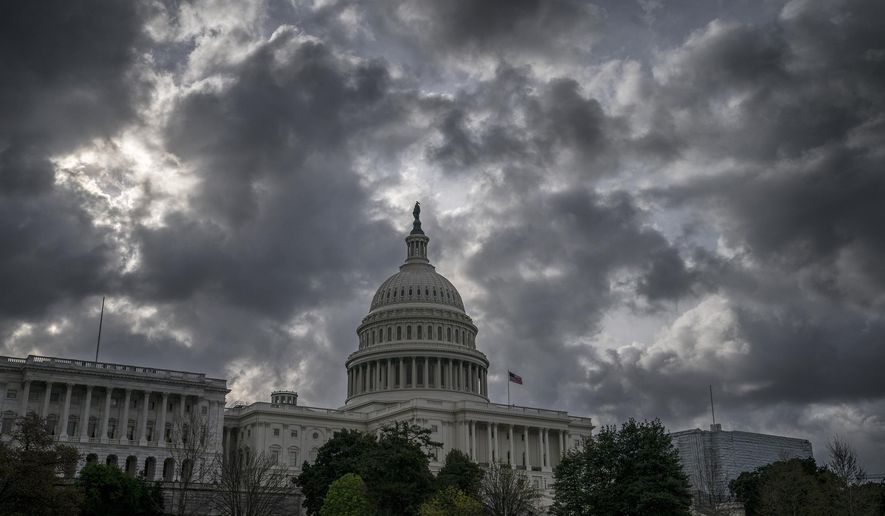The Government Accountability Office slapped its “high-risk” label on the federal unemployment insurance program Tuesday, saying what had been a small trickle of fraud turned into a gusher of waste during the pandemic.
Exact amounts are still unknown, but fraud estimates range as high as 40% of the roughly $900 billion Congress approved for enhanced benefits for the jobless during the pandemic.
GAO investigators said unemployment programs always dealt with lower-level problems such as people claiming benefits while they actually held jobs. But during the pandemic, a wave of identity fraud struck the program, and antiquated state systems were unable to stop the money from going out the door.
“GAO has determined that the UI system should be added to GAO’s High-Risk List,” the agency said in a series of new reports on the Labor Department’s unemployment insurance program. “DOL has some activities planned and underway for the UI system, such as creating a UI modernization office and implementing strategies aimed at reducing risk; however, many long-standing issues remain unaddressed.”
Usually, GAO adds new programs to its high-risk list when a new list is issued every other year. But in “urgent” cases Congress’ chief watchdog will make emergency updates to its list, and that’s what it did here.
The UI program is sponsored by the federal government and administered by the states, and many states were using antiquated systems as the pandemic struck in early 2020.
States also had problems with sending out checks — a 10-week wait for a first payment was common, GAO found. And some states struggled with awareness, outreach and access for communities, particularly African American communities.
The way Congress set up the pandemic program also created new loopholes. Hoping to push money out quickly, Congress allowed states to rely on “self-certification” of joblessness and waived waiting periods for initial payments.
Among the types of fraud found during the pandemic were hijacked bank accounts, with fraudsters rerouting legitimate claims to a different account that the scammers could access, and bogus websites mimicking states’ official unemployment portals. Unsuspecting people would report all their information to scammers instead of to the government.
But basic stolen identity scams seemed to predominate, with “organized crime groups, including those from foreign countries” being particularly active.
“One panelist, who has been investigating UI fraud at the state level, stated that many fraudsters who had stolen identity information prior to the pandemic saw the CARES Act UI programs as an opportunity to use that information to obtain benefits,” GAO reported.
There also was plenty of lower-level fraud.
Federal prosecutors on Tuesday announced a 65-month sentence against a Florida man who stole more than $170,000 in unemployment benefits by using pilfered identities and having payment cards sent to his address.
Local police caught him when he used a card issued in someone else’s name to buy a laptop computer in Elkridge, Maryland, in 2020. They then found 16 fraudulent claims the man had submitted to various state unemployment agencies.
Republicans on Capitol Hill said the GAO’s fraud findings should be a wake-up call.
“This troubling report says the federal government has no idea how much of the taxpayers’ dime has been lost in the greatest theft of tax dollars in American history — and that’s the point,” said Rep. Kevin Brady of Texas, the top Republican on the House Ways and Means Committee.
Democrats acknowledged “bad actors” who took advantage of the system, but cheered other GAO findings released Tuesday showing the nearly $900 billion in government assistance helped stabilize many Americans’ finances and survive the economic turmoil of the early pandemic.
“This supplemental funding was the difference-maker for so many families,” said Rep. Richard E. Neal, Massachusetts Democrat and House Ways and Means Committee chair. “It kept them in their houses, with food on their tables, and ultimately, laid the groundwork for our economy to make the comeback we’ve seen over the last year.”
For more information, visit The Washington Times COVID-19 resource page.
• Stephen Dinan can be reached at sdinan@washingtontimes.com.




Please read our comment policy before commenting.